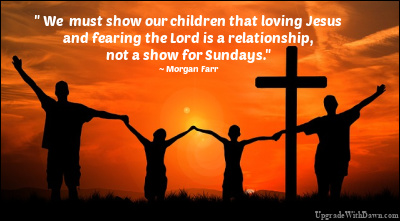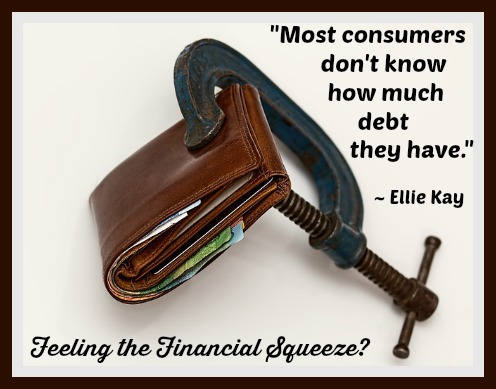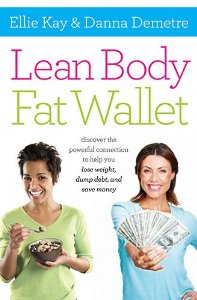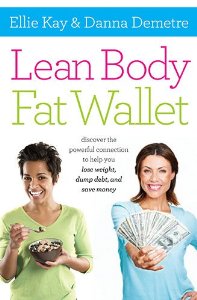Cut Out the Hypocrisy
Morgan Farr is a rare voice for God in the culture, calling Christians to actually live out the truth they believe. In this Parenting UPGRADE, she addresses the problem of hypocrisy in parenting—not to shame parents, but to encourage them to do what is right not only for their children's sake, but also in obedience to the Lord.
 "I have heard it said that character is caught, not taught," Morgan said. "I want my children to 'catch' from me not only a love of Jesus, but also a fear of the Lord."
"I have heard it said that character is caught, not taught," Morgan said. "I want my children to 'catch' from me not only a love of Jesus, but also a fear of the Lord."
I (Dawn) could not agree more. Parents make many mistakes—I certainly made my share. The biggest regret I have in my parenting is that I didn't model better the things I believe most. I trusted others to do that for me—Sunday school teachers, Church leaders, Christian friends, etc.
I shared Gospel truth, but often projected a "do as I say, not as I do" livestyle. It was a lost opportunity to influence them for God.
Morgan's call to cut out hypocrisy is rare in today's culture—even Christian culture.
Morgan continues . . .
If that adage—"Character is caught, not taught"—is true, Christian parents should have the market on grounded, righteous, and well-behaved children who stay in church and don’t waver in their faith, right?
WRONG!
According to a 2019 survey, two thirds of church-going young adults leave the church between ages 18 and 22!
One of the main reasons listed that young people are leaving the church? HYPOCRISY!
As a millennial, I can tell you from conversations with my own friends and family that this is pretty accurate. It breaks my heart.
The family is supposed to be a microcosm of Christian faith.
The father and mother represent the dual facets of God, each having strengths and weaknesses that help to point children to Christ.
John Wesley—the preacher who founded the Methodist denomination—said, “I learned more about Christianity from my mother than from all the theologians in England.”
Wow.
I decided to poll my social media connections to get an idea about the main areas where hypocrisy is hurting the Christian family. The three main topics were pornography, debt, and reading the Bible.
Three Ways to Cut Hypocrisy Out of Parenting
1. Dealing with Pornography—Rethinking Priorities
Pornography is a word that makes a lot of people uncomfortable, but it is a topic that must be discussed.
The statistics about porn in the church are staggering.
- 68% of church-going men view pornography on a regular basis
- 50% of pastors view porn on a regular basis.
- 76% of Christian adults 18-24 years old actively search for porn
- 55% of married men and 25% of married women watch porn at least once a month
All of this while we (rightly) teach our youth to abstain from premarital sex and to enjoy the marriage bed!
Now before you say, “Morgan, I NEVER watch porn!” — let me ask you, do you watch Game of Thrones? How about Grey’s Anatomy? Friends? The Office? What about the movies you watch and the books that you read?
This is often where people say, “But that isn’t porn!”
To which I say, "Nonsense."
Matthew 5:27-18 (MSG) says,
“You know the next commandment pretty well, too: ‘Don’t go to bed with another’s spouse.’ But don’t think you’ve preserved your virtue simply by staying out of bed. Your heart can be corrupted by lust even quicker than your body. Those leering looks you think nobody notices—they also corrupt.”
We cannot watch shows, read books, and play video games with titillating material and then espouse the virtues of waiting for marriage or remaining faithful in a marriage.
We need to take a step back and rethink our priorities here.
What is more important? Watching that show or teaching our children Christ-like discernment?
2. Conquering Debt—Leading by Example
The Bible teaches us not to have debt—but 80% of Americans are in debt!
Did you know the BIble has more than 2,000 verses dedicated to the topic of money?
God cares a GREAT deal about how we handle our finances, and yet many Christian families lack a budget or solid financial plans to be able to manage the money God has given them.
If we are going to teach and instruct our children in matters of finances, we need to take the log our of our own eyes and lead by example.
There are amazing Christian financial resources to help us get back on track. (For recommendations, don’t hesitate to reach out!)
3. Reading the Bible—Showing Its Importance
How could reading the Bible possibly be considered hypocritical to our children?
If we don’t actually do it.
Lifeway conducted a survey in 2017 that showed that 36% of Protestants read their BIble every single day. Only 20% had read the Bible all the way through.
How can we tell our children to love Jesus and fear the Lord if we aren’t doing that ourselves?
It is crucial as parents to be in the Word—not just so our children will learn but so that we will learn as well.
Do you know what parenting takes?
Love, joy, peace, patience, kindness, goodness, faithfulness, gentleness, and self-control.
Do you know how to get those? Galatians 5 tells us those qualities are the fruit of the Holy Spirit. In order to learn these things and have them be an integral part of our parenting, we have to be in our Bible daily.
SHOWING Jesus to Our Children
Finally, in our interactions during the day, we must show Jesus to our children.
- When we are on a walk in the neighborhood, we can talk about the creativity of God in how He designed nature.
- When a friend is ill, we can stop and pray for them.
- When there is political unrest, we can pray with our children for our country's leadership.
- We can let our children see us worship the almighty God in many ways.
We must show our children that loving Jesus and fearing the Lord is a relationship, NOT A SHOW for Sundays.
What do you want your children to “catch” from you?
 Morgan Farr is a Texas-loving, succulent-cultivating, book nerd. Stationed in Philadelphia, Pennsylvania, this Army wife is learning to train dogs, developing her four young children, and tackling homeschool life… while moving all over the country. Morgan writes about her transition away from feminism and much more at The Forgiven Former Feminist.
Morgan Farr is a Texas-loving, succulent-cultivating, book nerd. Stationed in Philadelphia, Pennsylvania, this Army wife is learning to train dogs, developing her four young children, and tackling homeschool life… while moving all over the country. Morgan writes about her transition away from feminism and much more at The Forgiven Former Feminist.
Graphic adapted, courtesy of Gerd Altmann at Pixabay.
 Post a Comment → Posted on
Post a Comment → Posted on  Tuesday, January 12, 2021 at 10:28AM
Tuesday, January 12, 2021 at 10:28AM 














